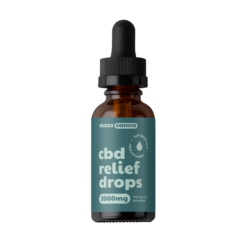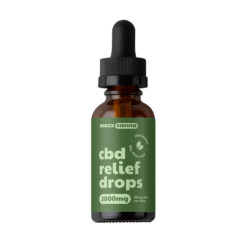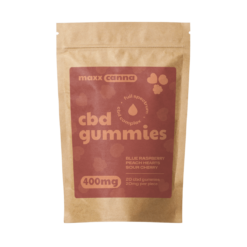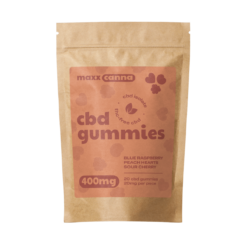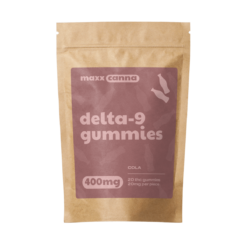Hemp oil and CBD oil are both derived from the cannabis plant, but they differ in their composition and uses. Hemp oil, also known as hemp seed oil, is extracted from the seeds of the hemp plant and contains little to no CBD. It is primarily used in cooking, skincare, and as a dietary supplement due to its high levels of omega-3 and omega-6 fatty acids.
On the other hand, CBD oil is extracted from the flowers, leaves, and stalks of the hemp plant and contains significant levels of cannabidiol (CBD). CBD oil is known for its potential therapeutic benefits, including pain relief, anxiety reduction, and anti-inflammatory properties.
Therefore, while hemp oil is primarily used for its nutritional value, CBD oil is sought after for its medicinal properties.
What is CBD Oil?
CBD oil, or cannabidiol oil, is a popular natural remedy derived from the cannabis plant. It is one of over 100 cannabinoids found in cannabis plants, alongside THC (tetrahydrocannabinol). Unlike THC, CBD is not psychoactive, meaning it does not produce the “high” typically associated with cannabis use.
CBD oil is extracted from the flowers, leaves, and stalks of the hemp plant, a variety of cannabis with high levels of CBD and low levels of THC. The extraction process typically involves using CO2 or ethanol to separate the CBD from the plant material, resulting in a concentrated oil.
What is Hemp Oil?
Hemp oil is obtained from hemp seeds and contains little to no tetrahydrocannabinol and it is also known as hemp seed oil. It contains Instead, it contains cannabidiol (CBD), a chemical that has been used to treat everything from epilepsy to anxiety.3 Hemp oil can refer to a full-spectrum oil from the Cannabis sativa plant or hemp seed oil, which is oil that comes from just the seeds of the hemp plant. There is very little risk of intoxication from hemp oil as all forms of hemp oil come from food-grain strains of hemp.2 Hemp oil has anecdotal evidence for curative properties ranging from improving acne to treating cancer to slowing the progression of heart disease and Alzheimer’s
Legal Status of CBD Oil and Hemp Oil in Canada
In Canada, the legal status of CBD oil and hemp oil varies due to different regulations and considerations.
CBD Oil:
As of 2024, CBD oil is legal in Canada if it is derived from hemp and contains less than 0.3% THC (tetrahydrocannabinol), the psychoactive compound found in cannabis. The production, sale, and consumption of CBD oil are regulated under the Cannabis Act, which came into effect in October 2018. Under this legislation, licensed producers are authorized to cultivate and process hemp to extract CBD oil for commercial purposes. Consumers can purchase CBD oil from licensed retailers or through online platforms. It is important to note that CBD oil derived from marijuana, containing higher levels of THC, remains subject to stricter regulations and is only available for medical purposes through authorized channels.
Hemp Oil:
Hemp oil, also known as hemp seed oil, is legal and widely available in Canada. It is extracted from the seeds of the hemp plant and contains negligible amounts of THC and CBD. Since hemp oil does not contain significant cannabinoids, it is not subject to the same regulations as CBD oil. Therefore, consumers can purchase hemp oil from various retail outlets, including health food stores, supermarkets, and online retailers, without restrictions. Hemp oil is commonly used in cooking, skincare products, and dietary supplements due to its nutritional value and beneficial fatty acids.
Overall, while CBD oil is subject to specific regulations under the Cannabis Act, hemp oil enjoys a more straightforward legal status in Canada, making it readily accessible to consumers for various purposes.
What’s the difference between hemp oil and CBD oil?
Chemical Composition: Hemp Oil vs CBD Oil
Hemp oil, also known as hemp seed oil, is primarily composed of fatty acids, such as omega-3 and omega-6, along with vitamins, minerals, and other nutrients. It is extracted from the seeds of the hemp plant and does not contain significant levels of cannabinoids like CBD or THC.
CBD oil, on the other hand, contains high levels of cannabidiol (CBD) extracted from the flowers, leaves, and stalks of the hemp plant. While it may also contain trace amounts of THC, it must be below 0.3% to comply with legal regulations. CBD oil is known for its potential therapeutic effects and is sought after for various health and wellness purposes.
Production Process Of Hemp Oil and CBD Oil
Hemp oil is typically produced through a simple cold-press extraction method, similar to how olive oil is made. This process involves pressing the hemp seeds to extract the oil, preserving its nutritional integrity and beneficial compounds.
CBD oil, however, requires more sophisticated extraction techniques, such as CO2 extraction or solvent extraction, to isolate the cannabinoids from the hemp plant material. These methods are followed by additional refinement steps to ensure the purity and potency of the final product. The extraction process for CBD oil is more complex due to the need to isolate specific compounds like CBD while minimizing the presence of THC.
THC Content in Hemp Oil and CBD Oil
Hemp oil contains negligible amounts of THC, typically less than 0.3%, as it is derived from the seeds of the hemp plant, which do not produce significant levels of cannabinoids. Therefore, hemp oil does not cause psychoactive effects when consumed.
CBD oil may contain varying levels of THC, depending on factors such as the extraction method and the source of the hemp plant. However, to comply with legal regulations, CBD oil must contain less than 0.3% THC to be considered legal in many jurisdictions, including Canada and the United States.
Uses of Hemp Oil and CBD Oil
Hemp oil is commonly used in cooking, skincare products, and nutritional supplements due to its rich nutritional profile and potential health benefits. It is also used in industrial applications such as biofuels and plastics.
CBD oil is primarily sought after for its potential therapeutic effects. It is used to alleviate symptoms associated with various conditions, including chronic pain, anxiety, insomnia, epilepsy, and inflammation. Additionally, CBD oil is increasingly being studied for its potential neuroprotective and anti-cancer properties, expanding its range of applications in the medical field.
Benefits of CBD Oil and Hemp Oil
CBD Oil:
Pain Relief: CBD oil has analgesic properties that may help alleviate chronic pain conditions such as arthritis, multiple sclerosis, and neuropathic pain. It interacts with the endocannabinoid system to reduce inflammation and pain perception.
Anxiety and Depression Relief: CBD oil has been studied for its anxiolytic and antidepressant effects, showing promise in reducing symptoms of anxiety disorders, depression, and post-traumatic stress disorder (PTSD). It interacts with serotonin receptors in the brain to regulate mood and emotional responses.
Neuroprotective Properties: CBD oil has neuroprotective properties that may benefit individuals with neurological disorders like epilepsy, Alzheimer’s disease, and Parkinson’s disease. It has shown potential in reducing seizure frequency and improving cognitive function.
Anti-inflammatory Effects: CBD oil possesses anti-inflammatory properties that can help mitigate inflammation associated with conditions such as arthritis, inflammatory bowel disease (IBD), and autoimmune disorders. It modulates the immune response to reduce inflammation and associated symptoms.
Sleep Aid: CBD oil may promote better sleep by reducing anxiety, pain, and stress, which are common contributors to sleep disturbances. It interacts with receptors involved in the sleep-wake cycle to regulate sleep patterns and improve sleep quality.
Hemp Oil Benefits:
Nutritional Support: Hemp oil is rich in essential fatty acids, including omega-3 and omega-6, in an optimal ratio for human health. These fatty acids support cardiovascular health, brain function, and immune system function.
Skin Health: Hemp oil is a natural emollient and moisturizer, making it suitable for skincare products. It helps hydrate and nourish the skin, promoting a healthy complexion and reducing dryness and irritation. It may also help alleviate symptoms of inflammatory skin conditions like eczema and psoriasis.
Heart Health: The omega-3 fatty acids in hemp oil may help lower cholesterol levels and reduce the risk of cardiovascular disease. Additionally, hemp oil contains antioxidants like vitamin E, which contribute to heart health by protecting against oxidative stress and inflammation.
Hair Care: Hemp oil can be used topically to condition and strengthen hair, promoting healthy growth and reducing breakage. Its moisturizing properties help hydrate the scalp and hair follicles, improving overall hair health and appearance.
Digestive Health: Hemp oil contains fiber, which supports digestive health by promoting regular bowel movements and preventing constipation. It also contains gamma-linolenic acid (GLA), which may help reduce inflammation in the digestive tract and improve symptoms of conditions like irritable bowel syndrome (IBS).
Potential Side Effects of CBD Oil and Hemp Oil
CBD oil:
Dry Mouth: CBD oil may reduce saliva production, leading to dry mouth. This can cause discomfort and thirst.
Drowsiness: CBD oil may have a calming effect on the central nervous system, leading to drowsiness or fatigue, especially when taken in higher doses.
Changes in Appetite: Some people may experience changes in appetite when using CBD oil, including increased hunger or decreased appetite.
Digestive Issues: CBD oil may cause gastrointestinal symptoms such as diarrhea, nausea, or stomach discomfort in some individuals, particularly when taken in high doses or on an empty stomach.
Interaction with Medications: CBD oil may interact with certain medications by affecting their metabolism in the liver. It is important to consult a healthcare professional before using CBD oil.
Hemp Oil:
Digestive Upset: Hemp oil contains high levels of fat, which may cause gastrointestinal discomfort, bloating, or diarrhea in sensitive individuals, especially when consumed in large amounts.
Allergic Reactions: Some people with known allergies to cannabis may be allergic to hemp seeds or hemp oil, leading to allergic reactions such as itching, rash, or swelling.
Interaction with Anticoagulant Drugs: Hemp oil may have mild anticoagulant effects, individuals taking these medications should consult a healthcare professional before using hemp oil.
Skin Irritation: When applied topically, hemp oil may cause skin irritation or allergic reactions in some individuals, particularly those with sensitive skin or pre-existing skin conditions.
Which is better: Hemp Oil or CBD Oil?
The choice between hemp oil and CBD oil depends on individual preferences, needs, and intended uses. Both oils offer unique benefits and potential drawbacks, so it’s essential to consider factors such as desired effects, legal considerations, and personal tolerance.
CBD oil is sought after for its potential therapeutic effects, including pain relief, anxiety reduction, and neuroprotective properties. It may be preferred by individuals seeking targeted relief from specific health conditions. On the other hand, hemp oil is valued for its nutritional content and skincare benefits, making it suitable for individuals looking to support overall health and wellness or enhance skincare routines.
Ultimately, the decision between hemp oil and CBD oil comes down to personal preferences and individual needs. Some individuals may benefit from incorporating both oils into their wellness routine, using hemp oil for its nutritional value and skincare benefits and CBD oil for its potential therapeutic effects.
FAQs: Hemp Oil vs CBD Oil
What is hemp oil good for?
Hemp oil is full of omega-3 and omega-6 fatty acids, which are great for your heart and brain. You can use hemp oil to make your skin happy and healthy because it’s a good moisturizer.
Can I use Hemp and CBD oil for anxiety?
Yes, you can use hemp and CBD oil to help with anxiety, especially CBD oil. It might make you feel calmer and less stressed. But it’s important to talk to a doctor before trying it to make sure it’s safe for you.
Can hemp oil get you high like CBD oil?
No, hemp oil won’t get you high like CBD oil. As hemp oil doesn’t contain much CBD or THC, the stuff that makes you feel high. So, you can use hemp oil without worrying about.
Can I take hemp oil and CBD oil together?
Yes, you can take hemp oil and CBD oil together. Some people like to use them both to get the best of both worlds. However, if you are undergoing any medication, just make sure to talk to your doctor first to make sure it’s okay for you.
Is hemp oil better than CBD oil?
It depends on what you need! Hemp oil is good for your overall health and can help with skincare and heart health. But CBD oil is better if you want help with things like pain, anxiety, or sleep problems. So, it’s up to you and what you’re looking for.
Is hemp oil good for relieving pain?
Hemp oil might help a little with pain because it has healthy fatty acids that reduce inflammation. But if you want something stronger for pain relief, CBD oil might be a better choice. It’s more focused on helping with pain and can be more effective.

